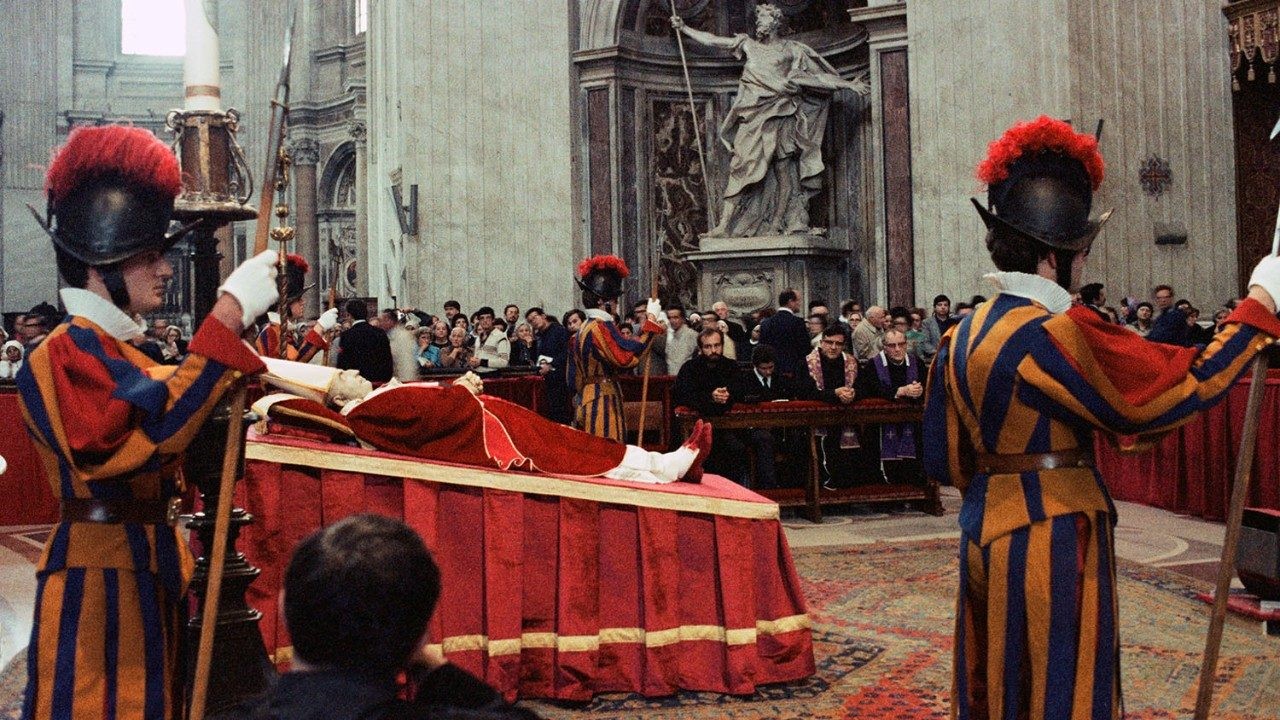Vatican City - Pope John Paul I, popularly known as ‘The Smiling Pope’ was beatified today in the Beatification Mass held at St Peter’s Square in Rome today. The healing of an eleven-year-old girl at the end of her life with "severe acute inflammatory encephalopathy, a malignant refractory epileptic illness and septic shock" was recognised as the miracle that led to his beatification.
Blessed John Paul 1, who graced the throne of Peter for only 34 days was born Albino Luciani on October 17, 1912. His parents were Giovanni Luciani and Bortola Tancon and had three brothers. He is also the first Pope born in the 20th century and the last Italian Pontiff.
He joined the minor seminary in 1923. He entered the Georgian Church in Belluno in 1928 and took the title of ‘Taken’ on February 2, 1935. His ordination was held on July 7 of the same year.
In 1941, he began and successfully completed his doctoral studies in theology and was appointed as the Patriarch of Venice and elevated to Cardinal in 1973.
He succeeded Saint Paul VI as the Supreme Pontiff on August 26 1978, assuming the title John Paul I. He is the first pope in the history of the papacy to have two first names. He took the name in honor of his predecessors John XXIII and Paul VI.

He was called to eternal rest on the 34thday of his pontificate due to cardiac arrest. Sister Margherita Marin, a nun of the Congregation of the Sisters of the Child Mary, was an assistant at the papal apartment, when she and Sister Vincenza Taffarel found the lifeless body of the Pope on 28 September 1978.
Thanks to scientific research, said Stefania Falasca, the deputy postulator, it was possible to upend the fake news about death by poisoning that "persisted for a long time."
She called this conspiracy theory a lie which “has engulfed for so many years the consistency and magisterial caliber of this man and this Pope."
In his first homily as Patriarch of Venice on February 8, 1970, in St. Mark's Basilica, Albino Luciani said: "Some things that please God are not inscribed on marble or iron tablets, but on dust." If such a writing remains, the right to it will belong to God. I am dust; The great episcopate and the diocese of Vittorio Veneto are wonderful things that God intended to write in me; If there is any good to be found in this composition of me, it is only the mercy of God."
These words 'I am dust' were the basis of the Christian life that Pope John Paul I witnessed throughout his life.
Bishop Renato Marangoni, Postulator for Sainthood Cardinal Beniamino Stella, Deputy Postulator Dr. and Stefania Falaska read the ‘Rite of Beatification’ at the Holy Mass.

"During the beatification, the group of postulators will present to the Holy Father a reliquary containing the relics of the new beatified,"
The life of Blessed John Paul I, is the simple story of a man who trusted God and entrusted himself to Him in every step of his life. This trust took place in the awareness of his own littleness. "Without me, you can do nothing," Jesus told his friends. "Get behind me, Satan!" the Nazarene ordered Peter after the latter had reproached him for having foretold his passion and death. These are two precious indications, that Albino followed throughout his existence.
The grace of recognizing oneself as a sinner, in need of everything; the grace of not counting on one's own strength, on one's own skill, on one's own strategies, but on the help and presence of Another, have enabled this priest, bishop and pope to bear witness to the face of a serene and trusting Church: a Church that lives the Gospel in daily life and does not need fireworks to show it exists; a Church capable of bringing closeness, consolation and hope to all, starting with the smallest, the poorest, the excluded and those who are considered unpresentable.
"The advance of spirituality is measured by the practice of humility," said St. Francis de Sales, Luciani's favorite saint. For him, a man of great culture and preparation capable of speaking in a simple and colloquial manner, making himself understood by all, it was just like that. The recognition of the altars for this son of the Venetian Church, who had never aspired to prominent posts and who, before being elected almost unanimously in the conclave, meditated on leaving as a missionary for Africa once he had reached the canonical age of resignation from Venice, is a sign of hope for everyone.
As the vice-postulator of the cause for canonisation Stefania Falasca reiterated, it is not the Pope or his pontificate that is to be beatified, but a Christian who adhered to the Gospel with his whole self, recognizing himself as "dust". A Christian who by praying every day: 'Lord, take me as I am and make me as you wish me to be', became the instrument through which the God of mercy wrote beautiful pages and today more relevant than ever, for the Church and for the world.